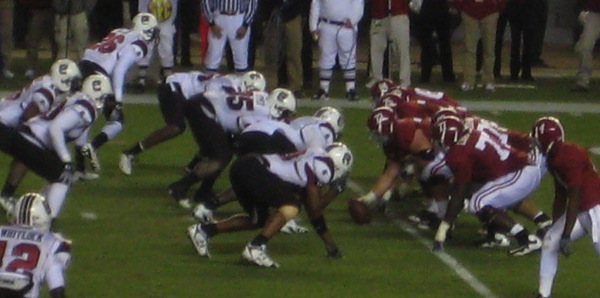Some say that we Americans take sports too seriously. This is probably true in one sense and definitely not true in another. We take sports too seriously when we attend to sports while other important aspects of life suffer. If we sin in the name of games, e.g., through being cruel toward others or through gambling, such sin could be the result of obsession with our own team or game. The present article is not for the purpose of delineating this kind of seriousness.
Here I want to basically reiterate some points made by Professor James V. Schall when he argued that we should carefully reflect on play and sports because of the lessons we can learn from them. ((“Sports and Play”)) Each lesson contributes to the overall thesis that sports exhibit qualities unique to human beings, and each helps us see something critical about the Christian life. Among these lessons are the following.
There are some things that are worth doing for their own sake. A child plays because he wants to play. Baseball is fun. Playing make-believe is a good thing to do. We know that there are various physical and psychological benefits of play, but we regularly pursue play simply because there is something good about the pursuit. Schall says, “Sport perhaps lacks the ‘seriousness’ of contemplating the highest things, yet it contains a liberty and a joy of its own that can only be had if we seriously engage in the play before us.” ((Ibid.))
The biblical view of all good human activity is that such activity occurs as part of a larger pursuit of God’s pleasure (Ecclesiastes 12:13-14; Colossians 3:17; 1 Corinthians 10:31). Admittedly, therefore, sports are not fully ends in themselves, but they are only one step removed. Students in America—even Christian students—largely perceive education strictly as a means to a job instead of as an end in itself. They have failed to learn the lesson from sports that there is such thing as an intrinsically good activity, or an activity that stands out from among all the humdrum daily activities that we do merely to achieve other ends. Worship is such an activity, and so if we fail to learn to appreciate intrinsic goods, then our worship becomes vain, no longer being “in spirit” (John 4:24; cf. Colossians 3:16).
Humans are capable of intense focus. In most sports, those who do well are those who are able to make a rational choice to take their focus away from everything external to the game at that moment. Those who study sports—from the press box or the sofa—may contemplate as deeply during the game as at any other time. Schall writes: “The closest most people come to pure contemplation is in the beholding of a good game, in being fascinated with the play, the strategy, the uncertainty of its results. We are enthralled by absoluteness of the game, by the time of the game, which is a time outside of the normal day-to-day time.” ((Ibid.))
The Christian understands the necessity of meditating on the word of God and studying its principles (Psalm 77:12; 119:23-27; 145:5; Acts 17:11; 2 Timothy 2:15). Such activity requires focus, and it is well that we train ourselves in this, whether in the classroom or on the ball field.
Egoism is damaging. Famous athletes are often selfish, but one of the benefits of sports—even individual sports—is that the participant does poorly to the degree that he is concerned with how he looks or how he is being perceived by the audience. Indeed, some athletes appear not to be able to take their minds off external superficialities until they are in the thick of a play on the field or court. Fans, whatever else they may be, are not self-absorbed when they are glued to the game in order to see what happens next.
Christ has taught us to give up selfishness in favor of service, to remove greed in favor of godliness (Matthew 20:26; John 13:34). When our attention is on the Lord, we can be transformed into what humans were designed to be—children of God and brethren of man (Matthew 22:38-39; 1 John 3:16-18).
Rules are essential. Take away the rules of basketball, and you don’t have basketball anymore. In sports, rules are carefully studied, applied, and praised. All properly human activities are governed by norms (written or unwritten) that are understood and followed. Furthermore, in sports rule-breakers are frowned upon. It is a bad sign when those who flaunt substance abuse rules are given extended appeals opportunities, and when rules are changed frequently or without evident forethought.
Religion is from the Latin infinitive meaning to bind. Law used to be a hallmark of traditional religion in the West, but those days appear to be fading. The truth remains that only those who make an earnest effort to follow God’s rules will be saved (John 14:15; 1 John 1:7). Those who obey God’s law can rejoice in the rules (Romans 2:13; 7:22; 13:3; James 1:25).
Play ball! And, Roll Tide.
CalebColley.com Comments Policy
